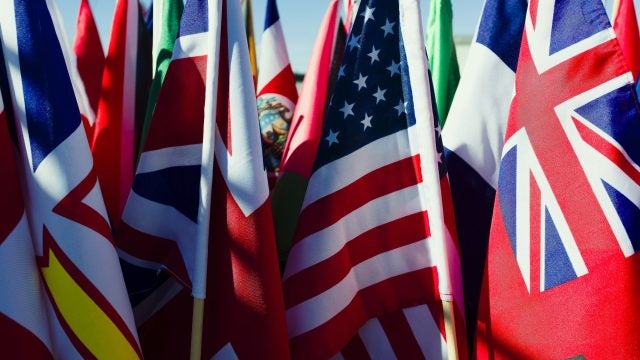
Title: Managing the China Challenge: A Case for Chuck Hagel as Secretary of Defense
On January 7, President Obama nominated his long-time supporter and two-term GOP senator from Nebraska, Chuck Hagel, to succeed Leon Panetta as the Secretary of Defense. The nomination has aroused much skepticism and criticism from both the left and the right within foreign policy and defense circles. Opponents accuse Hagel of anti-Semitic leanings, criticize him for being soft on rogue states such as Iran, and question his stance on gay rights as a result of his inconsistent anti-LGBT voting record in the Senate. Whether these allegations are well-grounded or not, Hagel is in the position of not only being able to provide the Obama administration with political cover at the Pentagon as a steadfast Republican serving a Democratic president, but also managing the China challenge well, given his previous involvement in and necessary knowledge of the U.S.-China relationship. As the Obama administration focuses its second term on nation-building at home, which requires cutbacks on expenditures such as defense, Hagel is capable of preventing millions of dollars from being spent that would militarize the Asia-Pacific region and strain ties with China.
Although some observers of Chuck Hagel’s confirmation and Senate Arms Services Committee hearings wonder if Hagel has thought enough about the China issue due to the lack of opportunity to ask him questions on the subject, Hagel in fact possesses a good comprehension of the U.S.-China relationship. In a 2010 meeting with Chinese Ambassador to the United States Zhang Yesui, Chuck Hagel described the relationship as “probably the most critical relationship for the twenty-first century.” He also mentioned that the United States is “far more likely to live peacefully and influence China if [the two countries] are bound by strong economic ties and mutual geopolitical interests.”
Hagel reiterated the gist of his understanding during an address at the Chinese National Language Conference in Washington DC in April 2012. Hagel suggested that the two nations “do not need to agree on everything…but we have to build a platform, a relationship…based on some values that we share.” He proposed that the platform would be built through the education system, which is “more powerful than any other force – certainly military, certainly economic.”
During an interview at the Chicago NATO Summit in May 2012, Hagel demonstrated his comprehension of China’s domestic problems and the country’s often misleadingly inflated capabilities in popular media:
“China is going to emerge and grow. It should; we should welcome that. They’re going to be competitors, they are now, as are India, Brazil and other nations. That’s OK. Trade, exchanges, relationships, common interests; all those emerging nations and economic, and strengths are all captive to basically the same kinds of things: stability, security, energy sources, resources, people. Everything that we have to have in our country to prosper, so do the Chinese.
The Chinese have bigger problems though. They’ve got huge problems, starting with the fact that they’ve got 1.3 billion people, and hundreds of millions of them live in abject poverty.,,They’ve got energy issues they’re going to be living with…They’ve made tremendous strides. They are a great power today, and they [are] going to continue to be a great power — and that’s okay. But we shouldn’t cower in the wake of that, or we shouldn’t be concerned that they’re going to take our place in the world.”
Though he has a good understanding of China’s relations with the United States, Hagel will also have to manage the China challenge with the backdrop of a shrinking defense budget. As a Vietnam War veteran, Hagel was scarred physically and psychologically by his experiences in what he calls “a needless, senseless war.” Marvin Kalb at the Brookings Institution wrote that Hagel’s appointment as Secretary of Defense would be a vivid illustration of the “Vietnam Syndrome,” a reluctance to commit American military power anywhere in the world unless absolutely necessary. Hagel’s stance on U.S. defense abroad is in line with Obama’s “nation-building at home” rhetoric that will be made manifest in his second term. The potential to manage this most important bilateral relationship without overspending and inadvertently exacerbating U.S.-China relations will be an asset to the administration’s foreign policy agenda of rebalancing toward Asia and maintaining—and perhaps strengthening—a working relationship with China.
From the perspective of U.S.-China relations, Chuck Hagel will likely be a competent Secretary of Defense. This may be all that is needed, as it should be acknowledged that individuals are no longer the principal determinants of foreign policies. Neither Hagel nor any other statesman will enjoy the same level of decision-making power of, for instance, former Secretary of State Henry Kissinger when Richard Nixon was mired in the Watergate scandal. Still, running the vast bureaucratic apparatus that is the Department of Defense effectively is a monumental and vital task, especially as the nation’s military is confronted with complex emerging traditional and non-traditional challenges such as a still-rising China. Hagel seems fully capable of meeting these challenges while taking into account the realities of the U.S. domestic situation.
Image Credit: Secretary of Defense, Public domain, via Wikimedia Commons
This is an archived article. While every effort is made to conserve hyperlinks and information, GJIA’s archived content sources online content between 2011 – 2019 which may no longer be accessible or correct.
More News

This article compares U.S. and Chinese approaches to artificial intelligence (AI) exports in Africa and examines how these disparate approaches have produced both downstream benefits and challenges for the region.

On May 20, 2025, the World Health Assembly unanimously adopted the World Health Organization (WHO) Pandemic Agreement, an international treaty designed to strengthen pandemic prevention, preparedness, and…

As the Trump administration proposes a sweeping overhaul of the US foreign assistance architecture by dismantling USAID, the Millennium Challenge Corporation (MCC), and restructuring the State Department, there is an…